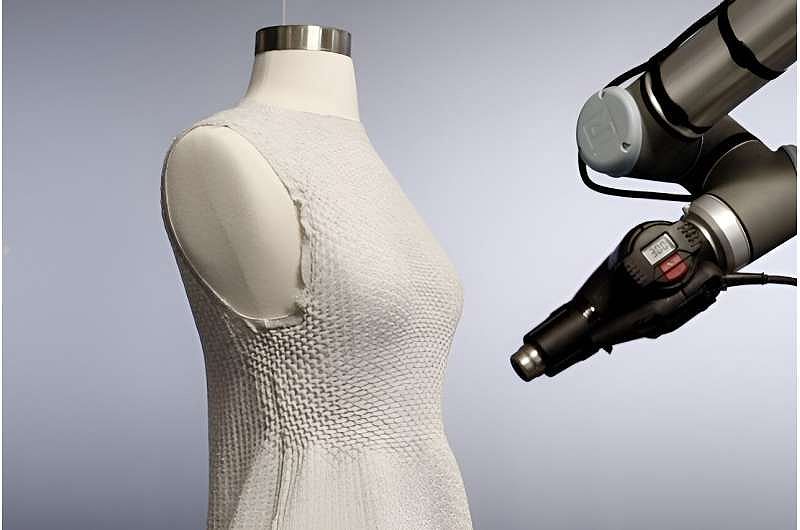The 4D Knit Dress combines cutting-edge technologies like heat-activated yarns and robotic activation to provide a customized fit and style. This sustainable dress eliminates waste and offers a versatile wardrobe option for consumers.
Revolutionizing Personalized Style and Sustainability
In recent years, the textile industry has witnessed remarkable advancements in active fibers and innovative knitting processes. These breakthroughs have opened up a new era in fashion, where personalized garments are no longer limited to the wealthy. The collaboration between the MIT Self Assembly Lab and Ministry of Supply has led to the creation of the groundbreaking 4D Knit Dress. Combining cutting-edge technologies like heat-activated yarns, computerized knitting, and robotic activation, this dress offers a customized fit and style for each individual.
Sasha McKinlay, a textile designer and researcher at the Self-Assembly Lab, played a crucial role in the development of the 4D Knit Dress. By utilizing active yarns and a unique knitting technique, McKinlay programmed the lab's industrial knitting machine to produce multiple dresses with precision. The dress molds itself to the wearer's body, ensuring a perfect fit that is tailored to their unique physique.
The role of robotics in the creation of the 4D Knit Dress is another significant aspect. Danny Griffin, a graduate student in architectural design, contributed his expertise in robotics to the project. Griffin developed a programmable robotic procedure that precisely controls the application of heat to activate the fibers in the dress. This allows for further tailoring of the dress by reapplying heat, enabling style modifications over time.
Sustainable Fashion with a Personalized Fit
The fashion industry often faces challenges in producing garments efficiently, resulting in excess inventory and waste. Gihan Amarasiriwardena, co-founder and president of Ministry of Supply, highlights the problem of fast fashion and its environmental impact. In contrast, the 4D Knit Dress offers a sustainable alternative. By being made entirely in one piece, waste is virtually eliminated. Additionally, the dress is customized to the wearer's size, reducing excess inventory and enabling a more efficient production process.
As consumers become more conscious of the environmental impact of their clothing choices, the 4D Knit Dress provides a glimpse into a future where style and sustainability go hand in hand. This innovative approach to fashion has the potential to reduce waste in the industry and allow for greater adaptability to changes in styles and tastes.
The Future of Personalized Fashion
The 4D Knit Dress represents a significant step towards reevaluating our relationship with clothing. With its use of active fibers, computerized knitting, and robotic activation, this dress offers a sustainable and adaptable solution to the challenges faced by the fast fashion industry. Sasha McKinlay hopes that this new technology will reduce waste in the fashion industry and allow for greater adaptability to changes in styles and tastes. The dress can be transformed and reinvented to evolve with the wearer, providing a versatile and sustainable wardrobe option.
The collaboration between the MIT Self Assembly Lab and Ministry of Supply has showcased the potential of this innovative approach to fashion. If the demand is there, the 4D Knit Dress could quickly become a reality for consumers, revolutionizing the way we think about personalized style and sustainability.


